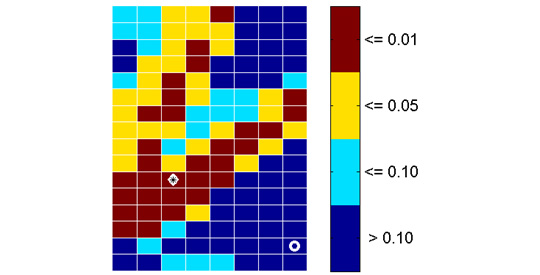
Clinical translation of reported biomarkers requires reliable and consistent algorithms to derive biomarkers. However, the literature reports statistically significant differences between one dimensional (1D) MRS measurements from control groups and subjects with disease states but frequently provides little information on the algorithms and parameters used to process the data. The sensitivity of in vivo brain magnetic resonance spectroscopy (MRS) biomarkers is investigated with respect to parameter values for two key stages of post-acquisitional processing. Our effort is specifically motivated by the lack of consensus on approaches and parameter values for the two critical operations, water resonance removal and baseline correction. The different stages of data processing also introduce varying levels of uncertainty and arbitrary selection of parameter values can significantly underutilize the intrinsic differences between two classes of signals. The sensitivity of biomarkers points to the need for a better understanding of how all stages of post-acquisitional processing affect biomarker discovery and ultimately, clinical translation. Our results also highlight the possibility of optimizing biomarker discovery by the careful selection of parameters that best reveal class differences. Using previously reported data and biomarkers, our results demonstrate that small changes in parameter values affect the statistical significance and corresponding effect size of biomarkers. Consequently, it is possible to increase the strength of biomarkers by selecting optimal parameter values in different spectral intervals. Our analyses with a previously reported data set demonstrate an increase in effect sizes for wavelet-based biomarkers of up to 36%, with increases in classification performance of up to 12%.
View full article

